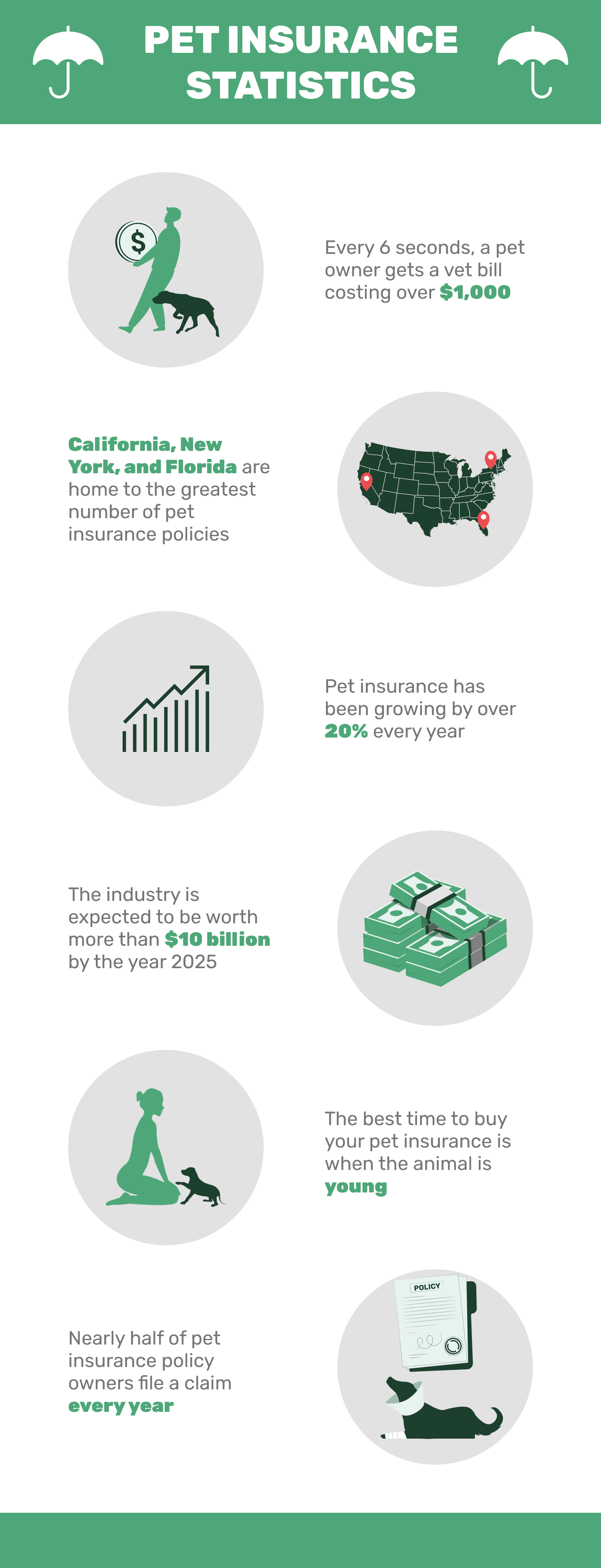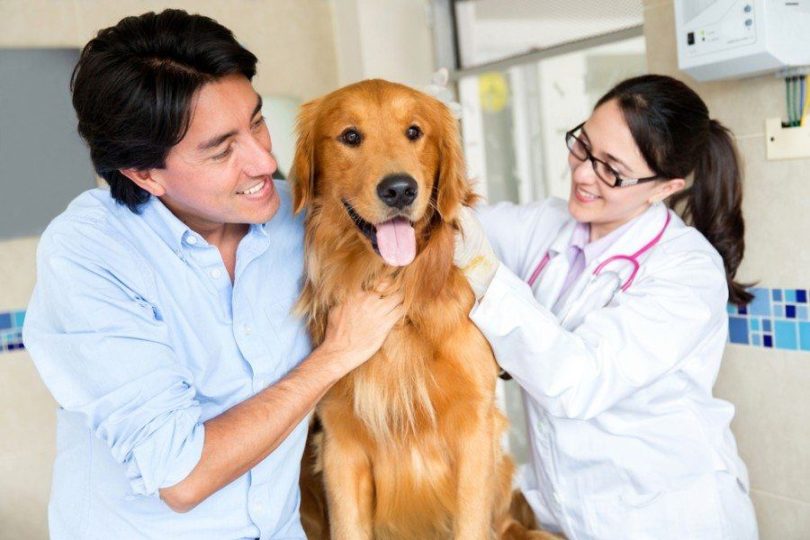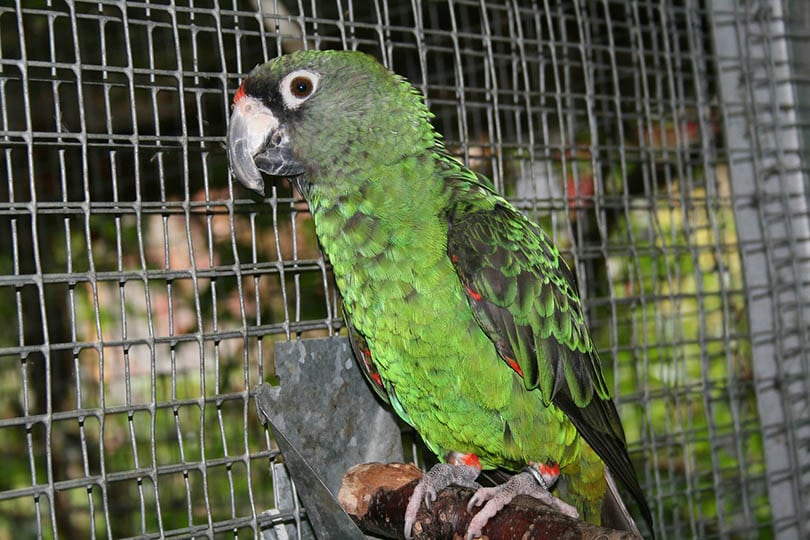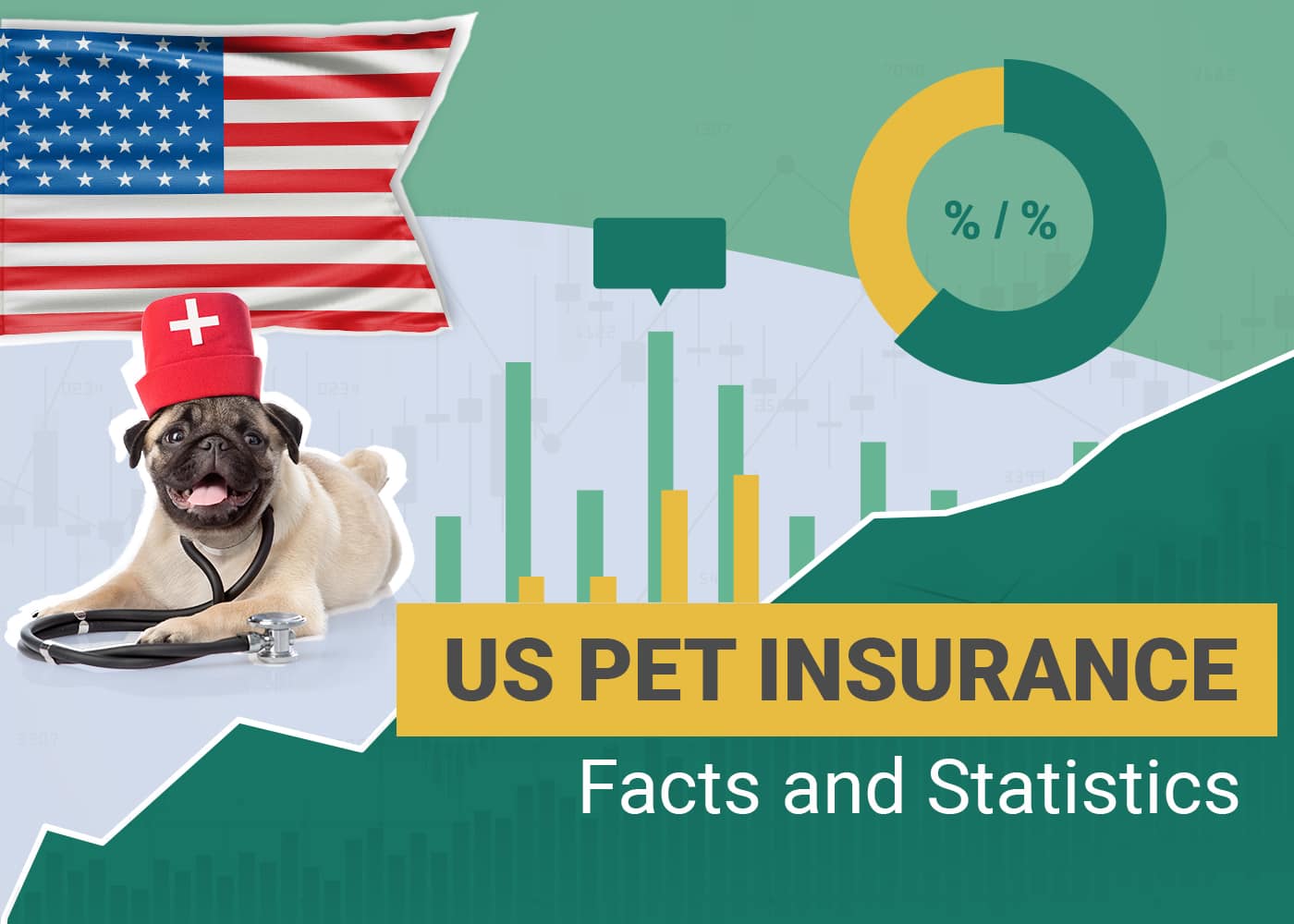Click to Skip Ahead
Note: This article’s statistics come from third-party sources and do not represent the opinions of this website.
Whereas health insurance is a given in most family homes, pet insurance isn’t as popular. Nevertheless, millions of people in the nation welcome a pet into their household and even view the animal as one of their family members.
If you truly view your pet as a part of the family, wouldn’t you want to provide it with the best medical care possible? Pet insurance helps you ensure they can get it. Not to mention, you can save a lot of money in the process.
To ensure that you make the best decision about your pet’s insurance, read on to learn about 14 top statistics and facts to know.

The 14 Pet Insurance Statistics
- Almost 70% of US households have pets.
- Dogs and cats are the top pets in the US.
- 80% of US pet owners consider their pet as a family member.
- The average US household spends over $1,000 on vet care a year for the family dog.
- Every 6 seconds, a pet owner gets a vet bill costing over $1,000.
- COVID-19 led to a major increase in pet adoption.
- California, New York, and Florida are home to the greatest number of pet insurance policies.
- Pet insurance has been growing by over 20% every year.
- The industry is expected to be worth more than $10 billion by the year 2025.
- Pet insurance options may be growing, but it is still an underserved market.
- The best time to buy your pet insurance is when the animal is young.
- Nearly half of pet insurance policy owners file a claim every year.
- Coverage varies based on your pet, policy, and company.
- Most pet insurance plans have reimbursement models.


Statistics About Pet Ownership in the United States
Pets are an important part of many homes. Especially in the United States, millions of pets are part of the family every year. Here are some facts about pet ownership in the United States:
1. Almost 70% of US households have pets.
(Humane Society of the United States)
In the United States alone, nearly 70% of households have at least one pet or more. That comes out to a whopping 85 million United States households with pets in total.

2. Dogs and cats are the top pets in the US.
(American Pet Products Association)
Of the millions of pets around the nation, dogs and cats are the two most popular. Together, there are 184 million pet dogs and cats. About 50% of pets are dogs, whereas around 34% are cats.
3. 80% of US pet owners consider their pet as a family member.
(American Veterinary Medical Association)
Even more shocking is the fact that 80% of the pet owners in the United States consider their pet as one of their family members. That just goes to show how important the pet is in the home.

4. The average US household spends over $1,000 on vet care a year for the family dog.
(Humane Society of the United States)
Pets are highly expensive. In fact, it is estimated that the average household in America spends almost $1400 on vet care for the family dog every year, according to a survey by the American Pet Products Association (APPA). However, according to the U.S. Pet Ownership & Demographics Sourcebook by the American Veterinary Medical Association (AVMA) which is published every 5 years, this amount is significantly lower, closer to $500.
This amount does not even include food, toys, and other items you would buy for the dog.
5. Every 6 seconds, a pet owner gets a vet bill costing over $1,000.
(Pet Insurance Quotes)
This is a very real figure that tells you just how easy it is for your vet bill to grow to outrageous portions. Don’t tell yourself that it won’t happen to you because it most likely will at some point in your pet’s life.

6.COVID-19 led to a major increase in pet adoption.
(Insurance Research Council)
Shockingly, it is estimated that nearly 30% of all Americans adopted a pet during the height of the pandemic. It makes sense that the pet insurance market has increased so rapidly since then.

Pet Insurance Market Statistics
When it comes time to make your decision about pet insurance, it is important to pay attention to the market. Paying attention to the market can help you determine when the best time to buy pet insurance is and what to expect from it in the future.
7. California, New York, and Florida are home to the greatest number of pet insurance policies.
(North American Pet Health Insurance Association)
In the United States, the three states with the most pet insurance policies include California, New York, and Florida. California comes in first with a whopping 19.4% of all policies, whereas New York comes in second with 9.1% of all policies. Florida only claims 6.2%.

8. Pet insurance has been growing by over 20% every year.
(North American Pet Health Insurance Association)
Even though pet insurance still isn’t super popular, it has been growing by over 20% every year, showing that there is a huge increase in interest in pet insurance.
9. The industry is expected to be worth more than $10 billion by the year 2025.
(Global Market Insights)
By the year 2025, the pet insurance market is expected to be worth more than $10 billion. This makes sense since the interest in pet insurance is growing every year. With more policies, the market will become more lucrative.

10. Pet insurance options may be growing, but it is still an underserved market.
(North American Pet Insurance Association)
Yes, it is true that pet insurance is growing, but it is still a largely underserved market. In fact, there are only around 20 pet insurance companies in the nation.

Pet Insurance Coverage Statistics
It is important to select a policy that covers your pet, but this is easier said than done. Here are some shocking statistics about pet insurance coverage
11. The best time to buy your pet insurance is when the animal is young.
(Forbes)
Unfortunately, most pet insurance policies do not cover pre-existing conditions. For this reason, you want to buy pet insurance before your pet even has the opportunity to develop any conditions. That way, you can save as much money as possible.

12. Nearly half of pet insurance policy owners file a claim every year.
(Pet Insurance Quotes)
To show just how helpful pet insurance policies can be, keep in mind that about 50% of all policyholders end up filing a claim every single year. This shows how helpful having pet insurance is from year to year. It also shows you don’t have to worry about wasting any money.
13. Coverage varies based on your pet, policy, and company.
(Pet Insurance Info)
Many factors will impact your pet’s coverage. For example, certain pets are more prone to health conditions than others, which means your breed can impact how much coverage your policy offers.

14. Most pet insurance plans have reimbursement models.
(National Association of Insurance Commissioners)
If your vet does not accept your pet insurance policy, don’t worry. Nearly all pet insurance policies have reimbursement models to ensure you get your money’s worth from the product.

Frequently Asked Questions About Pet Insurance
What is the average cost of pet insurance?
The average cost for accident and illness coverage is about $590 a year for dogs and $350 a year for cats. As for accident-only coverage, the average is $194 a year for dogs and $126 a year for cats.
(Forbes)
How much does pet insurance increase each year?
On average, pet insurance for dogs increases by about $26.50. This is just the national average, which means your particular brand and policy may result in different prices per year. Cat prices stay relatively stable.
(The Humane Society of the United States)
How many pet owners have pet insurance?
It is estimated that 2.8 million pets are insured within North America.
(Insurance Information Institute)

How are claims paid out?
Nearly all pet insurance claims are paid out through a reimbursement design. This reimbursement allows you to get your pet coverage, no matter which vet you go to.
(Pet Insurance Quotes)
Is my pet covered for life?
Most pet insurance policies are designed to cover your pet for life, assuming that you continue paying the insurance policy premium. It is for this reason that it is important to get your pet insurance as early as possible.
(Forbes)

Conclusion
If you truly view your pet as part of the family, why not provide it the same treatment that you give to the rest of your family? With pet insurance, you know that your pet is getting the best medical care it deserves without destroying your budget.
Even if you think your pet is healthy and not likely to need extreme medical care anytime soon, think again. Because of how common it is for animals to get into accidents, pet insurance really does come in handy when you least expect it.








